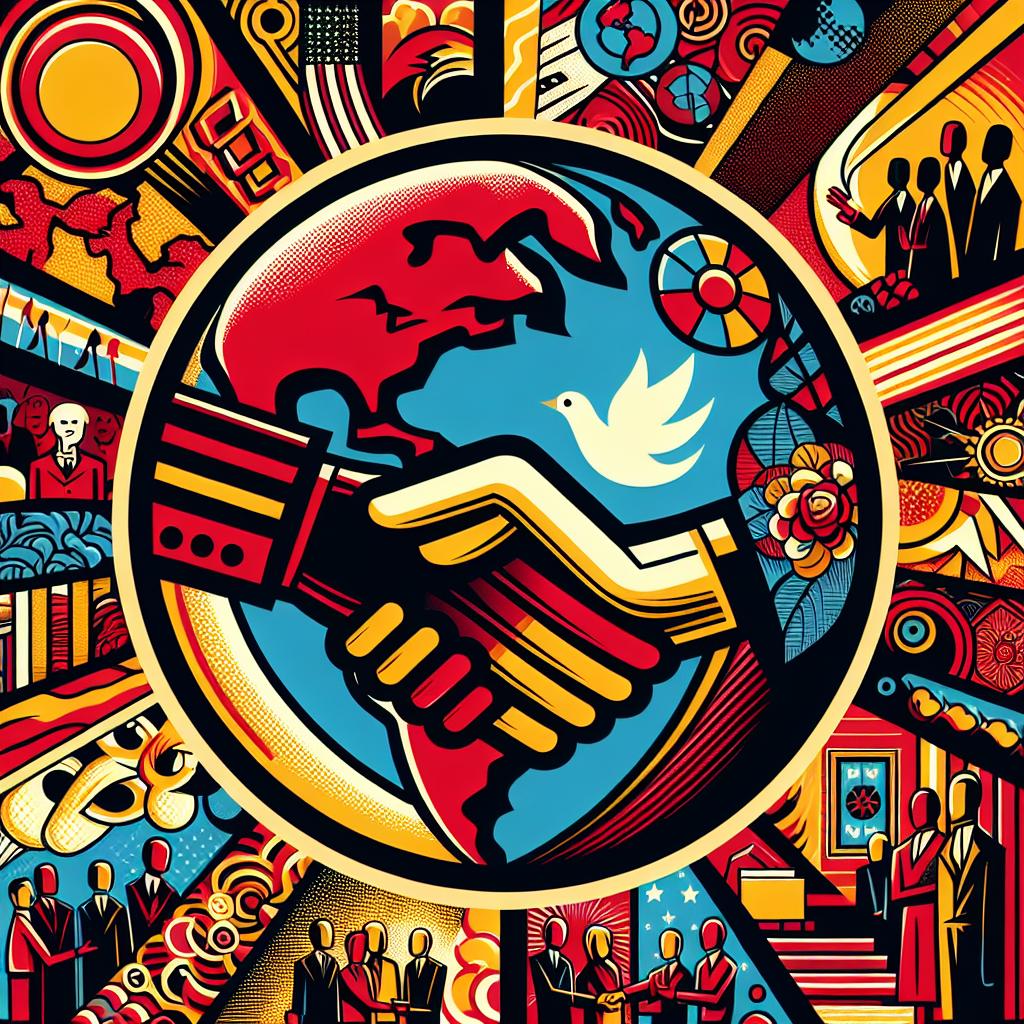-
Summary
- 2025-07-02 13:03

The intricate dance of diplomacy and conflict witnessed globally underscores the complexity of modern geopolitics. In Gaza, the announcement by former U.S. President Donald Trump regarding Israel’s acceptance of a temporary ceasefire marks a pivotal moment in regional tensions. This development, anticipated before Israeli Prime Minister Benjamin Netanyahu’s diplomatic engagement, signifies potential shifts in Middle Eastern politics. Concurrently, humanitarian concerns arise due to criticisms from over 170 NGOs against the hazardous nature of Gaza’s current aid distribution framework. Such critiques demand urgent reevaluation to ensure safety while delivering essential support to affected populations.
Simultaneously, South Korea is navigating through dual pressures of economic reform and political activism. Government-led economic strategies aim to stabilize markets and boost investor confidence, reflecting a proactive stance towards sustainable growth. Public demonstrations, driven by demands for greater transparency and accountability, illustrate the populace’s active role in shaping governance. This dynamic interplay between state policies and civil society movements could potentially lead to more robust institutional frameworks if managed effectively.
On another front, U.S.-Ukraine military engagements reveal strategic recalibrations. A Pentagon-initiated review led to withholding specific weaponry previously pledged to Ukraine, altering existing military aid protocols. Meanwhile, aggressive maneuvers like drone attacks orchestrated by Ukraine on Russian installations further intensify the volatile relationship between these two nations. These adjustments and confrontations signify evolving tactics in managing prolonged conflicts and maintaining strategic alliances.
In Europe, the resumption of dialogue between Russian President Vladimir Putin and French President Emmanuel Macron after a hiatus post-2022 highlights the importance of sustained high-level interactions amid global crises. Their discussions encompassing Ukraine and Iran underscore how unresolved conflicts can be perpetuated or mitigated depending on leadership decisions. Media coverage emphasizes the significance of these conversations in stabilizing international relations, even when direct communications had paused for extended periods.
In recent developments concerning Gaza, former U.S. President Donald Trump announced that Israel has agreed upon terms for implementing a 60-day ceasefire. This statement was made prior to Israeli Prime Minister Benjamin Netanyahu's upcoming visit. Multiple sources including HuffPost, Bangkok Post, and Radio New Zealand covered this significant political move. Additionally, over 170 humanitarian organizations have collectively voiced concerns regarding a newly established Gaza aid distribution system which they believe poses lethal risks to individuals involved in receiving assistance. These entities include various international charities advocating for safer mechanisms for aid delivery.
In recent news from South Korea, there have been significant discussions surrounding economic policies aimed at boosting market stability and growth. Various articles highlight government initiatives designed to stimulate investment and enhance consumer confidence. Additionally, political movements have gained traction with public demonstrations advocating for policy changes and reforms. These developments reflect ongoing efforts to address both economic challenges and societal demands for transparency and accountability.
Political activism has also intersected with economic strategies as citizens engage actively through protests demanding more transparent governance and effective economic measures. This period sees an interplay between governmental actions and grassroots movements, emphasizing the need for balanced progress in both sectors.
The United States conducted a comprehensive review of its military commitments towards Ukraine. As a result of this assessment, it decided not to dispatch certain weapons initially promised to Ukraine. This decision impacts ongoing military aid dynamics between both nations. Separately, there was an incident involving Ukrainian drones targeting a defense facility situated deep within Russian territory, specifically about 1300 kilometers from their shared border. This event reflects ongoing aggressive actions amidst the broader conflict between Ukraine and Russia.
The recent discussions between Russian President Vladimir Putin and French President Emmanuel Macron marked their first interaction since 2022. These dialogues covered significant global issues such as the ongoing conflict in Ukraine and developments concerning Iran.
Both media outlets reported on this notable event, emphasizing that despite the lapse in communication until mid-2025, these leaders addressed critical geopolitical matters impacting international relations.
In recent developments, Kirsten Gillibrand issued an apology directed towards fellow politician Zohran Mamdani concerning derogatory remarks related to Muslims. Both reports from reputable sources highlight this incident where Gillibrand acknowledged her mistake regarding comments that were perceived as anti-Muslim. Despite being covered across different URLs from the same publication, Huffington Post, the essence remains consistent: addressing political relations and public apologies for sensitive issues impacting religious communities.